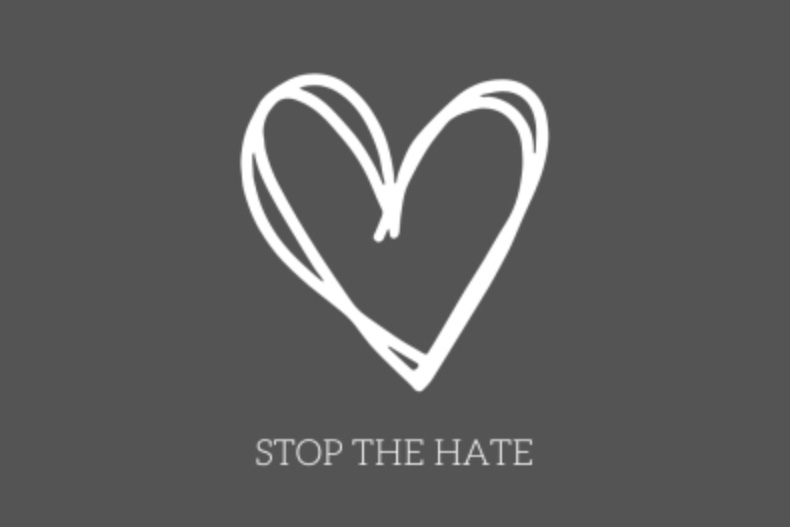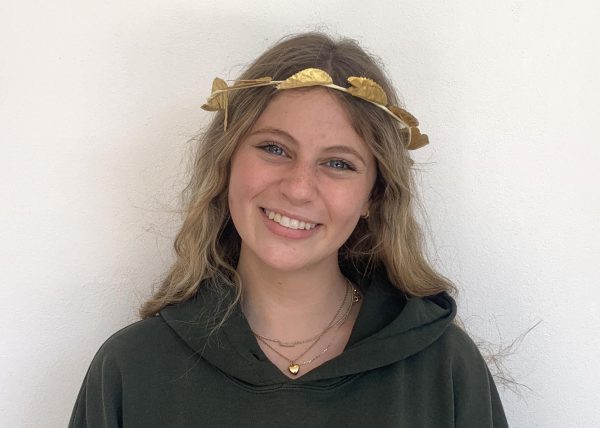Op-Ed: How to combat hate, stop polarization
Photo credit: Ella Schwartz
To start ending worldwide polarization, we must begin having conversations with people who hold different beliefs than us. Fostering empathy and recognizing others as a human is how we can begin repairing the world and mending the political divide.
May 31, 2023
Our world has become so polarized that people see opinions as either right or wrong; there is no in-between. To combat this polarization and lack of empathy, we must form relationships with those who hold different beliefs than us or are unlike ourselves.
People must foster empathy and understanding to start changing the world for the better. The perfect example to use as an example of this solution is through the prism of the Israeli–Palestinian conflict.
In 2014, four Harvard graduates created an Israeli-Palestinian education group with the mission of fostering an understanding of each viewpoint at a deeper level beyond their conflict. Two of the group’s leaders are Israeli, and two are Palestinian. The group organizes conferences to unite Israeli and Palestinian citizens, giving them an outlet to converse about identity, suffering and victimhood.
The night before the group begins discussing difficult topics, such as land distribution of Israel, politicians from both Israel and Palestine converse over dinner. The leaders tell the group they cannot discuss issues involving race, politics or Israel and Palestine’s affairs. This is important for the two opposing sides to understand one another, starting with talking as humans rather than as enemies.
Israeli Public Servant in the Ministry of Justice Sarit Spiegelstein positively reflected on his time with the group. In an article by HuffPost, he said the group was not trying to “find a solution” or debate certain issues. Rather, the goal was “to explore the feelings that underpin the social, physiological, and emotional barriers to peace.” Understanding others’ struggles and seeing them as human beings rather than distant “inhuman” characters is powerful.
In a similar manner, America in One Room focuses on fostering empathy through conversation and relationship building, in this case, between American political parties. The organization took 523 random registered voters and gathered them into a conference room to discuss issues such as healthcare, climate change, racism and abortion rights.
Results from the discussion revealed large changes in voters’ opinions. Stanford University concluded that “the most polarizing policy proposals, whether from the left or the right, generally lost support, and a number of more centrist proposals moved to the foreground.” This goes to show that when people take the time to understand one another on the basis of being human, polarization will begin to mend.
I, myself, am guilty of falling into the trap of a closed mind. I understand that most times, people only see opinions and not a whole person; it’s hard to separate someone’s beliefs from who they truly are.
I was raised by liberal parents, attended progressive schools and live in California, a Democratic state. I’m quick to think that Republicans are uneducated and cruel, that pro-life believers have no respect for women and that gun owners are dangerous and unlawful. As I think more deeply about combating polarization with understanding, I realize I have no right to judge people who have beliefs opposing mine without making an effort to try to understand their views.
The truth is, I’ve never taken the time to interact with people who hold different beliefs. I am certain if I sat down and had a conversation with a Republican peer my age and didn’t talk about politics, we’d most likely end up talking about Taylor Swift and Joe Alwyn’s recent breakup.
These conversations make us teenagers — not Democrats or Republicans.
I now know, because of the studies and personal reflection, that it’s intolerant not to educate myself about other points of view and not diversify my relationships. To begin repairing the world and eliminating hate, society must stop dehumanizing those with opposing values; maybe, start by asking about their day.









